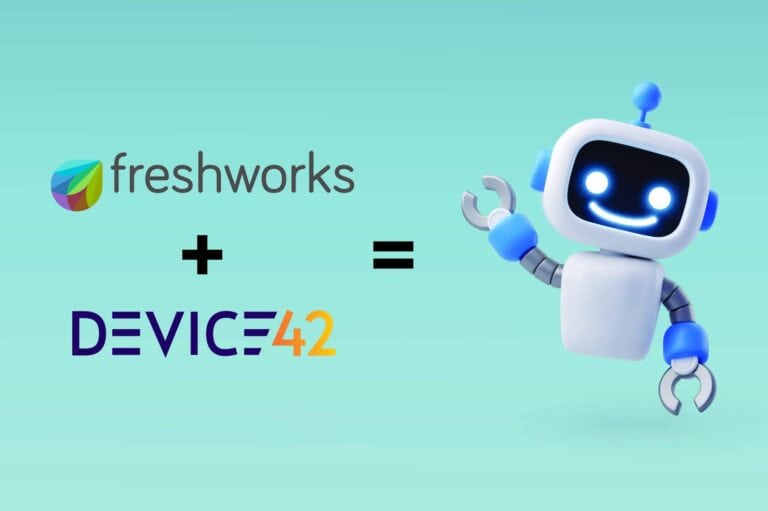All of my jobs have been service jobs
I will come back to this, and how it likely applies to you too, shortly. First though, I want to invite you to step into my memory for a brief tour of my service management journey thus far.
Table of Contents
ToggleMy first job was manning a concession stand at a park when I was about 13, joining a few high school girls already engaged as counter slaves (and no, of course that was not why I wanted the job). No paperwork, no forms, just an ‘under the table’ summer gig for a guy whose picture should have been next to the word skinflint in the dictionary.
I encountered my first taste of being part of delivering what we now call ‘service management’ and the ‘customer experience’ behind that counter, when a kid about 10 asked me to mix all five flavors of pop (soda) we offered in one glass. All flavors were the same price, so it seemed fine to me, even if the result was a distinctly unusual greyish-toned brew that (I later found) I personally found unpalatable. It was not long before this odd request became quite popular, especially among younger patrons, who christened the mix ‘the graveyard’. About a week later Mr. Skinflint paid one of his infrequent visits and witnessed us mixing this concoction, and promptly told us to stop the practice – my first observation of “management-decision-making-sans-data”. It took all of 30 minutes for him to realize (via negative reactions of customers) that maybe we were on to something. He then announced that ‘the graveyard’ was being added to the menu (as if it were his own idea), but would cost ten cents more than the other drinks – my introduction to the concepts of customer influence, capitalism, and conniving bosses.
Over the years that followed I held many other jobs ranging from the classic janitorial through managerial. Each provided either new lessons in how to deal with customer expectations, requirements, desires, behaviors, etc., or presented variations on these themes. Over time, I found that almost every job has elements that require delivering an output that may only infrequently be truly appreciated, while at the same time being continually expected. Some of the jobs I found like this (and lessons I learned in them) include:
Prep cook at a ‘family style’ restaurant chain: There is a balance required between quality and quantity (keeping up with demand). The effect on your business and customers when demand exceeds expectations depends much on your capabilities (people, skills, technology, etc.) and how they can compensate for increasing demand. But whenever capability is exceeded, the result is the same: poor service/quality, which no customer should experience (at breakfast or otherwise). Avoiding undercooked bacon (or its equivalent in any other industry) needs to be part of everyone’s job.
Janitor: Dirty jobs are the glue of civilization. The jobs many choose not to consider doing include most of the jobs that allow us to call ourselves ‘civilized’. Trash collection. Cleaning restrooms. Mopping sweeping slopping picking crawling shoveling – these are among the activities many consider beneath them. To anyone thinking thus, I would say “Wake up!” (to be nice about it), and consider for a moment how your life would be affected if no one would perform such jobs. I guarantee you this: you would not be living in cities. Instead, try to be like the person I encountered when I myself had a high-school job that included restroom duties. I felt at the bottom of the chain until the day this person stopped me and said “You know, until you came I would never go in that bathroom, since it was always disgusting. Thanks for doing a great job keeping it clean.” I never again doubted the significance of such ‘thankless’ jobs.
Security Guard: A lonely vigil does not lessen the importance of a job. Middle of the night + empty building or parking lot, etc. + no one around at all, maybe for miles. Quiet, dull and sometimes with no idea of what exactly one was supposed to be protecting/watching. This combination was pretty common in my early security days, during college. Over time however events (preventing a crime or injury for example) proved time and again that even jobs that seem to have no customer actually do, even if we don’t know who they are or why it matters. You might believe you are completely outside the notice of a customer – but you would more than likely be wrong.
The “and You” Part
This then is where I come back to how all this applies to you. I contend that every job is ‘customer facing’ in some way, whether you ever encounter a ‘customer’ or not. Think about your job: Finance department? Manufacturing line? Application developer? Computer operator? Dishwasher? Chief Executive? Every one of these – and most any other – has someone that is dependent on the outcomes you facilitate or contribute to. Service jobs are not limited to those that deal directly with customers or users – they include every job that affects someone in some way because that job is being performed (or not performed).
Many of the ‘failures’ found in the application of ITSM or any business chain occur as a result of not realizing – or admitting – the effect of activities that most consider to not be ‘customer facing’. Those effects might be as small as a wrinkled nose or as large as losing plenty of market share or even life and limb. A spill not cleaned up; an incident avoided; a bolt not tightened to spec; authorizing a recall before customers complain; an accounting error; an extra coat of paint; silverware that still has old food on it; elegant code; bad code– any of innumerable actions (or inactions) that no customer actually sees, but eventually sees the results of.
It took me a lot of years to realize all this of course, and to really understand that it does not matter how far ‘removed’ a job might seem from a customer or user, it is still part of the experience they ultimately have. The guy that grows the potatoes is as much a part of it as the guy that asks “Do you want fries with that?”, and the best experience results when they and everyone between them approach things that way.
I stuck with service management (or it stuck with me) because I believe that every job makes a difference, and I want to make that difference positive. No matter what you do, you can bet that someone, somewhere, whether they are conscious of it or not and have no idea who you are, is thanking you if you did your job well – or cursing you if you didn’t. So, regardless of what that job is, always try to do it in a way that gives those people a good reason to thank you – even if it means they won’t think of you at all.






